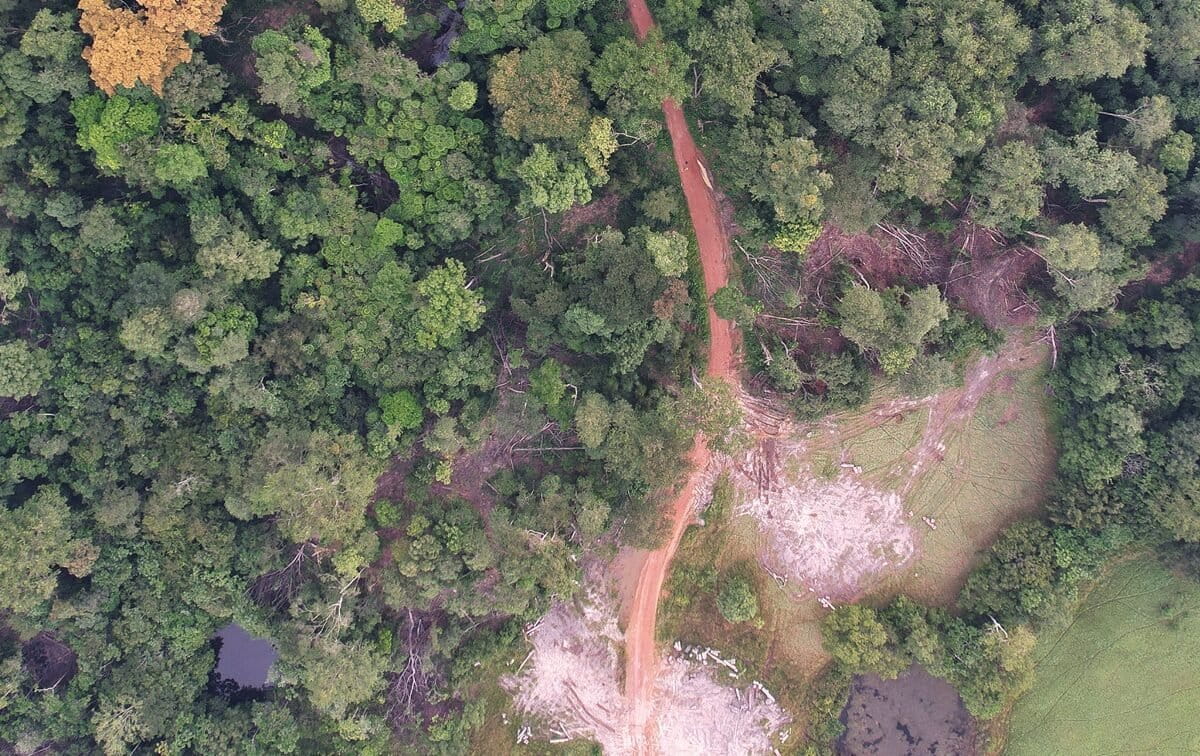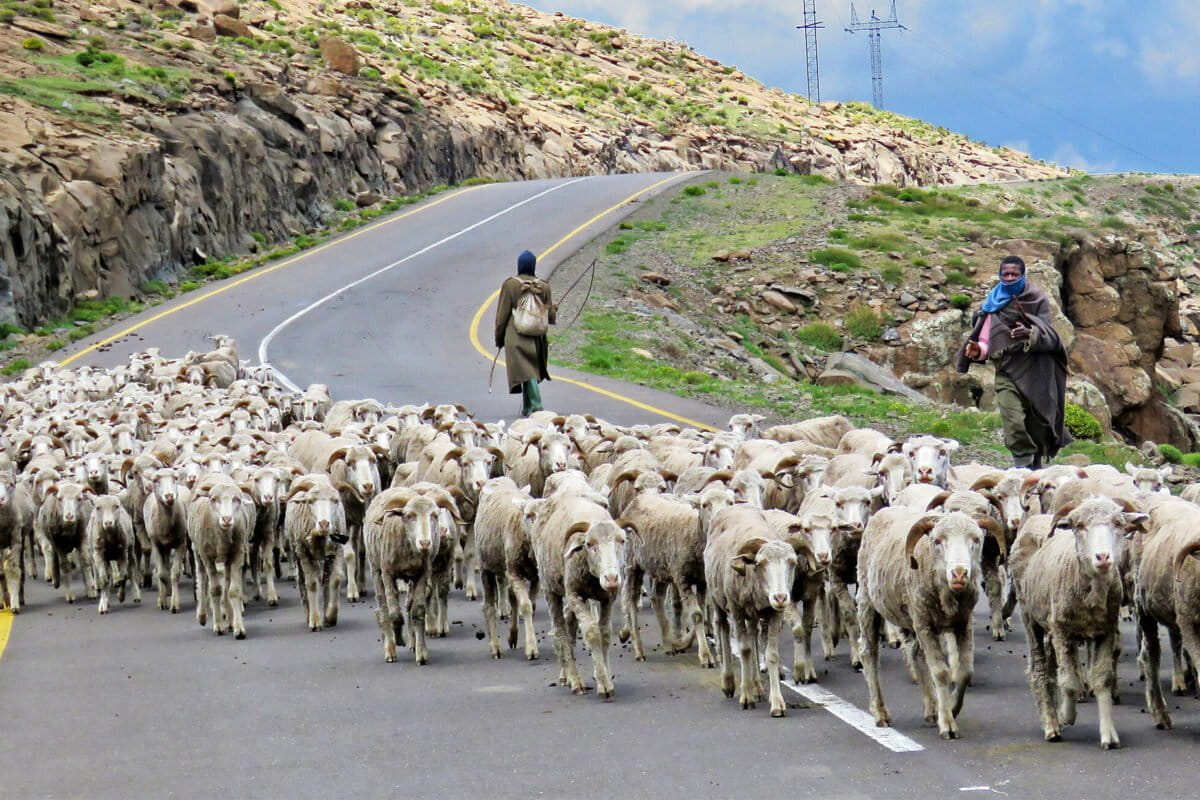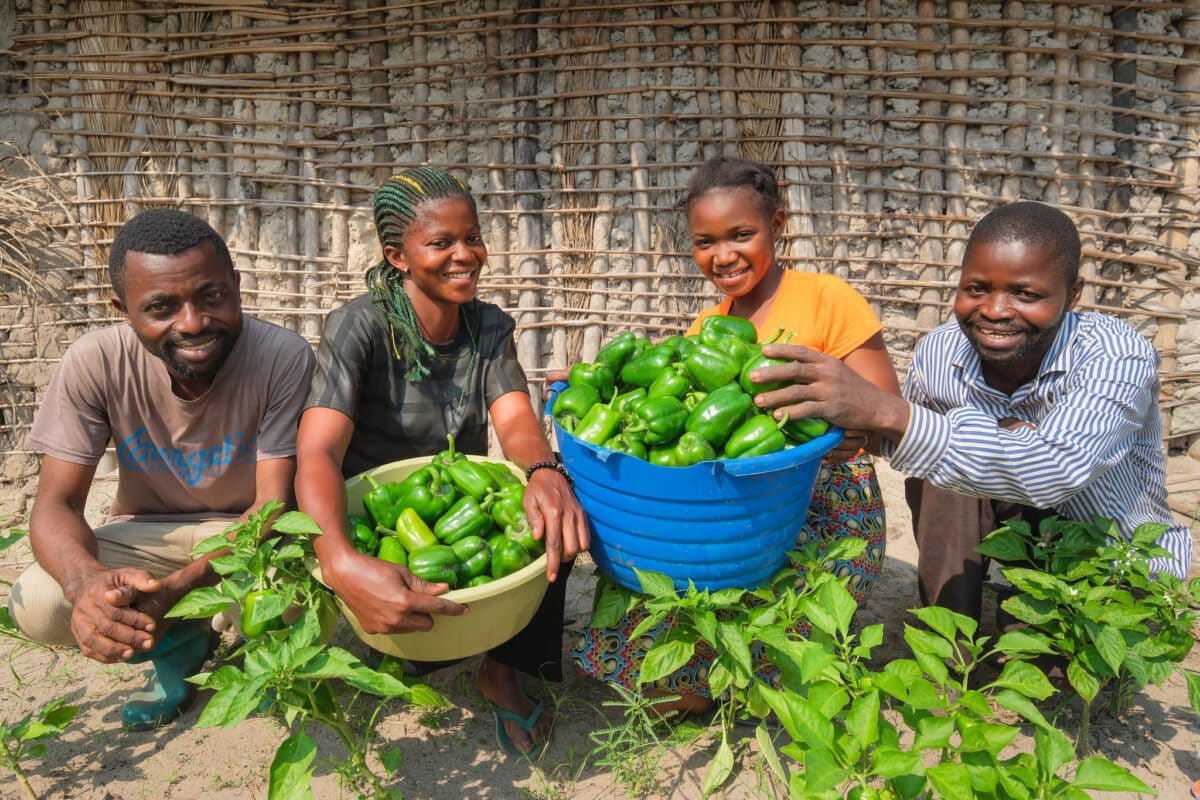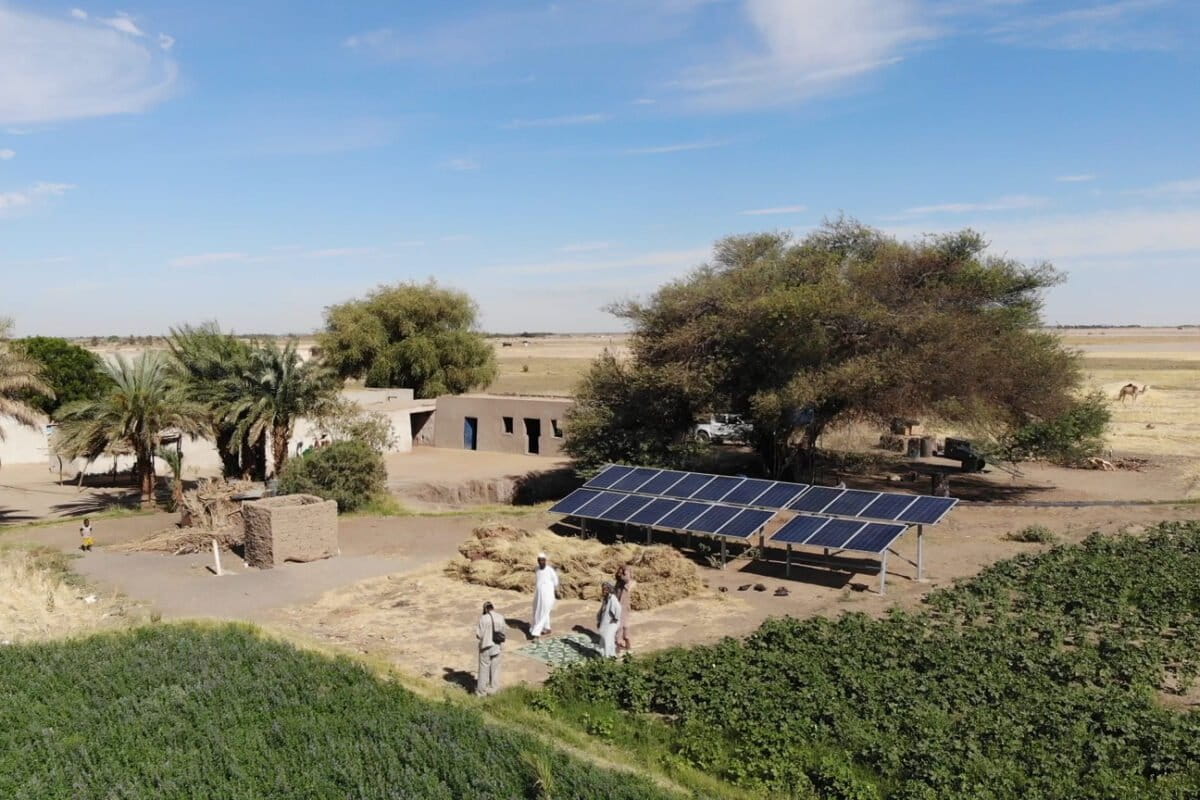- Gabon’s environment minister has announced an immediate end to the logging of the Massaha ancestral forest in the country’s northeast, setting his administration a two-month deadline to finalize technical questions for permanent protection of the site.
- The move follows his visit to Massaha to gain a better understanding of the motives behind the community’s request to declassify the logging concession and grant it protected area status.
- Minister Lee White also ordered the Chinese company that holds the logging concession, Transport Bois Négoce International (TBNI), to “leave quickly” and “preserve the area.”
- This is a precedent-setting case in the country’s management of forests, representing the first time an area will be declared protected at the request of the resident community.
MAKOKOU, Gabon — In August 2020, the Massaha community in northeastern Gabon made a formal request to the government to declassify a logging concession allocated to a Chinese company, Transport Bois Négoce International (TBNI). They sought to create a protected area that would be managed by the village in this corner of Ogooué-Ivindo province. TBNI began aggressively logging the forest soon afterward. Now, after months of mixed signals from the government, Massaha’s request has received a positive response.
Gabon’s minister for water, forests, the sea and the environment, Lee White, visited Massaha on March 22 and 23. He met with the community and visited the abandoned sites of several ancestral villages, as well as a sacred site on the north bank of the Liboumba River that had been completely destroyed by TBNI. Then, he traveled south of the river to an intact sacred site where, at the foot of a bubinga tree (Guibourtia tessmannii), he witnessed a ceremony invoking the spirits of the villagers’ ancestors.
“It is not just the forest that speaks to me, but the ancestors as well,” White said after the ceremony. “We came to Massaha to get a better understanding of the community’s request. They are concerned that the forestry activities will destroy their sacred sites, so we came to reassure them.”

Logging halted
Following his visit, the environment minister told a meeting of villagers, local authorities and TBNI representatives that he recognizes problems with the logging and has ordered the company to leave. “I ask TBNI to leave quickly and remove all the remaining logs from the site in order to preserve the area. After that, we will discuss what needs to be done with the elders,” he said.
In June 2021, TBNI and its sub-contractor, Wan Chuan Timber Sarl (WCTS), began racing to exploit the logging concession to the fullest. Members of the community have raised the alarm over pollution and damage to the environment, the blocking of waterways, lack of marking on felled stumps, and the destruction of ancient villages and sacred sites north of the Liboumba.
South of the river, a road into a forested area that had never been logged was built without an environmental impact assessment. These violations of forestry legislation were recorded and publicized by national media outlets as well as by international advocacy organizations. The breaches were recently inspected by the provincial directorate of water and forests and the Gabonese NGO Conservation Justice.
According to the environment minister, there is no doubt that TBNI was acting illegally: “When you see a kapok tree here and other trees over there, we quickly realise that this is the former site of a village … That’s why management plans, in principle, should always be subject to socioeconomic assessments … These assessments are supposed to avoid such issues.”
At a general assembly of the community five days after the minister’s visit, Arsène Ibaho, president of the community’s forest management committee, said, “We ourselves knew that the minister could not refuse our request. We have shown proof of our story. Thank God Lee White came to visit himself. Even though one part [of the forest] has already been destroyed, we will reforest it. It’s a huge relief and we are very grateful to the minister.”

Setting a precedent
White’s visit to Massaha came after mounting pressure: Eight letters addressed to the directorate of water and forests over 19 months, two visits to Massaha by the directorate of wildlife and protected areas, numerous intimidation attempts against the villagers and a member of the local media, and pressure on the environment minister from international NGOs and the ICCA Consortium (which supports conservation by Indigenous people).
In addition to these administrative efforts, the community called on the spirits of their ancestors to appeal to the heart of “the white man (Lee White)” who is able to save this forest from exploitation and safeguard the culture of the Kota people.
It must now be determined how the government will protect this forest, named Ibola Dja Bana Ba Massaha (meaning “the reserve for all the children of Massaha”), and to what extent the community will be involved in the management of a future protected area.

White said the classification that the villagers have requested — a “protected area on a hunting estate” — was unsuitable for this community setting, but he said the government will be able to find an appropriate designation: “We already have maps showing what one can call a conservation zone along the river. Perhaps we could extend this zone, but we will need support to do so … once this is sorted, we will meet again to see what kind of zone we can establish which guarantees that the locals will be able to continue using the forest. We are also thinking about how to create a new type of protected area within the forest code.”
The legal status that is decided on will be of great importance as this will be the first protected area in Gabon established at the request of a local community. In doing so, Gabon is demonstrating its commitment to meet the “30 by 30” goal that emerged from the recent COP15 biodiversity meeting in Geneva.
Gabon’s director general of forests and the Ogooué-Ivindo provincial director of water and forests have been instructed to finalize the technical documentation within the next two months. They will be assisted by the villagers regarding GPS tracking of the sites and old villages, the maps of the area, and all other aspects that require administrative engagement.
“We have created a list of those who will go into the forest and demarcate the sacred sites and old villages, as per the minister’s request,” Ibaho said at the general assembly on March 27. “They are also the ones who will accompany the technicians sent by the [department of] water and forests. We hope that there won’t be any more hurdles.”
Mixed signals from Gabon officials to villagers fighting to save a forest
Banner image: Road constructed into the forest near the Liboumba River. Image by Ivindo FM.
CORRECTION Apr. 14, 2022: The article has been updated to clarify that Massaha’s villagers have called on their ancestors to appeal to environment minister Lee White and to make clear that it’s White who feels the classification requested by Massaha’s villagers is not suitable.
This article was first published here on Mongabay’s French page on Mar. 30, 2022.
Benjamin Evine-Binet is the director of Ivindo FM, a community radio station in Makokou. Twitter: @ivindofm
FEEDBACK: Use this form to send a message to the author of this post. If you want to post a public comment, you can do that at the bottom of the page.














